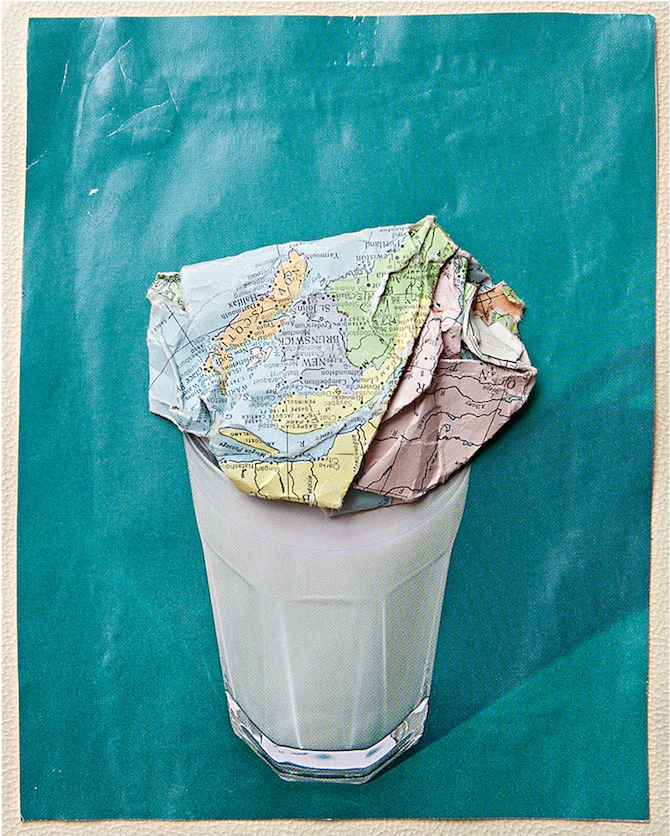
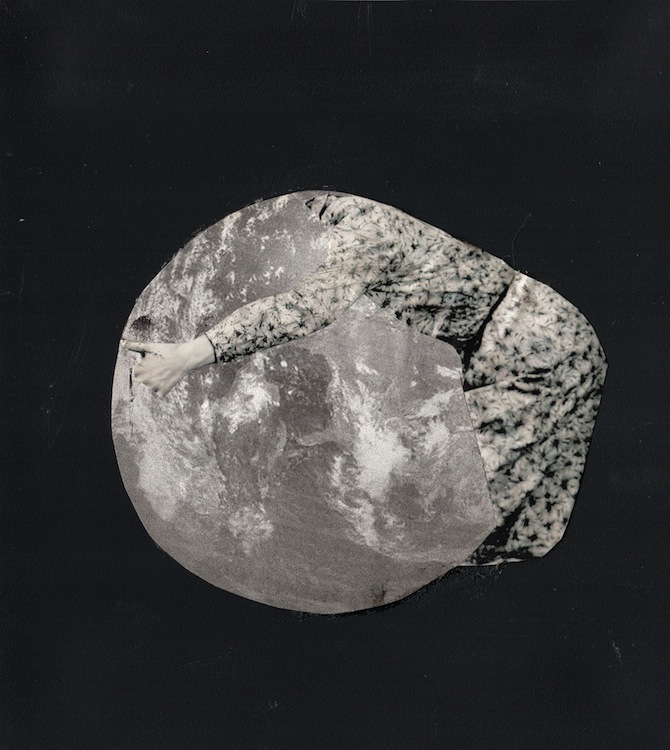
all images: Courtesy and © Özge Enginöz
Born in Balıkesir in Turkey, Özge Enginöz is a young contemporary artist who is specifically known for her mixed-media works. Her delicate choice of materials comprises and integrates toys, works on paper, old photos, video, collage, painting and drawing. Having studied at the Art and Design Faculty of Yıldız Teknik University, the Istanbul-based artist spent two years in the Istanbul Art Center recidency program and subsequently exhibited her work in several solo and group shows across Europe. Currently on display at Artnivo's first pop-up exhibition "Download" at Sofa Hotel and at the group show "Where am I?" at Kare Art Gallery, Özge Enginöz’s work is specifically present in Istanbul’s art scene. During our interview in Çukurcuma, she talked about her artistic practice, about her inspiration and about how Turkey’s current political situation influences contemporary art.
Mine Kaplangı: Is there a concept influencing your artistic practice and the techniques you use?
Özge Enginöz: With the influence of the capitalist production system, modern societies‘ individuals are mechanised in the way they act and communicate. In my process of production I too become a part of this process, for example by using dots, especially in my paintings. I mechanise myself during the process of creating and I substantiate my process of creating with the process I criticise. Holding the most superior place in the evolution chain, humans consume more than they produce. They become part of a mute and deaf mass, while still trying to establish their individuality. They are easy to manipulate, since morals, needs and choices are easily inserted into their minds. People are under a constant pressure, while trying to exist within the consumerist societies. They are gradually metamorphosing. This is why I employ headless shapes, such as plant forms. In this way, the viewer and the form exist as equals.
Mine: Could you explain more about the formation process of your works?
Özge: I experiment with different disciplines: While working on a painting or a collage, I evaluate whether adding motion or three-dimensionality will change and transform the image. As such, my works are never finished results – they are experiments and studies. Nonetheless, I consider everything I employ within the creation process, such as a magazine’s page or a toy, to be readymades – objects, which I utilise in my work. Their compatibility with other objects from my work is what particularly interests me: If I find a photograph that coincides with another one, if they can be integrated or juxtaposed, I get excited and this accelerates my practice.
Mine: What inspires you?
Özge: I am interested in literature, especially poetry. I write down notes from whatever I read and create notebooks. When I want to re-read a book I go back to my notes; it is one of my favourite things to do. I also collect objects from countries and cities that I visit and sometimes I employ these objects in my work. A part of this collection process is to regularly switch the places of these objects in my studio and my house.
Mine: Which artists do you follow continuously? And which ones inspire you?
Özge: They are all from different fields but I usually try to follow artists like Francis Alys, Mona Hatoum, Katharina Fitsch, Sarah Lucas, Peter Doig or Louise Bourgeois.
Mine: You have worked with many different galleries and institutions in Istanbul. What is your opinion on the city's contemporary art scene?
Özge: I don’t think we are very conscious when it comes to art; I am sceptical in regard to the way different actors of the art world operate or what they consider interesting. I personally believe that there still is a certain unconsciousness that affects these actors. Also, many aspects of the relationship between art-dealers and artists could be questioned.
Mine: As you live in Istanbul, do you think there is any project or institutional opportunity for artists that the city lacks? What needs to be reformed or what should be innovated?
Özge: Of course there is. Most artists in Istanbul try to rent studios and create their work within their very limited space. I believe artists would benefit from an increase in residence programs in order to pursue their practice independently. I also think that artists need more workshop opportunities and more collaboration spaces, in which they can cooperate with international artists.
Mine: How does the current problematic situation in Turkey reflect on contemporary art? Is isolation a strategy to cope with the current state?
Özge: I think the situation’s absurdity both inspires and frightens the artists. While trying to establish a calm existence to create, the artists still need to let the chaos feed their works. We exist in a state of constant anxiety and of pretence. Artists gradually becomes experts on their own solitude.
Mine: Currently your work is exhibited in many different spaces around Istanbul, such as Mixer, Kare Art Gallery and Sofa Hotel. Could you tell me more about your future projects?
Özge: I am thinking to join some residency programmes and I will continue participating group exhibitions with different artists. And if I use my creating process efficiently than I might have a plan for a new solo show.
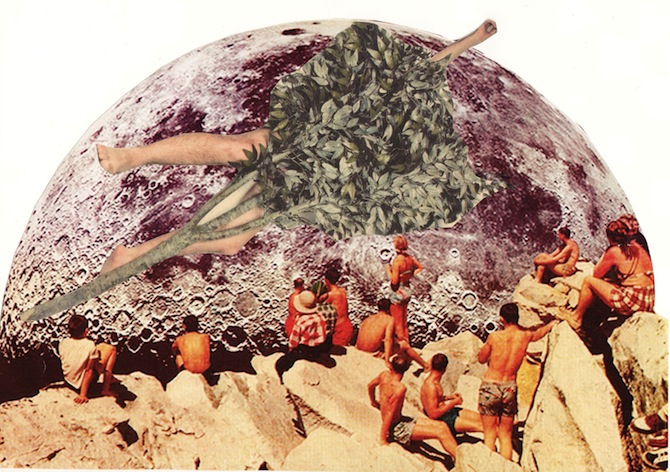
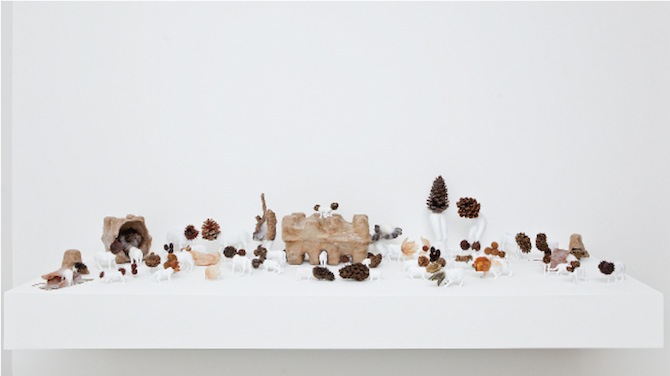
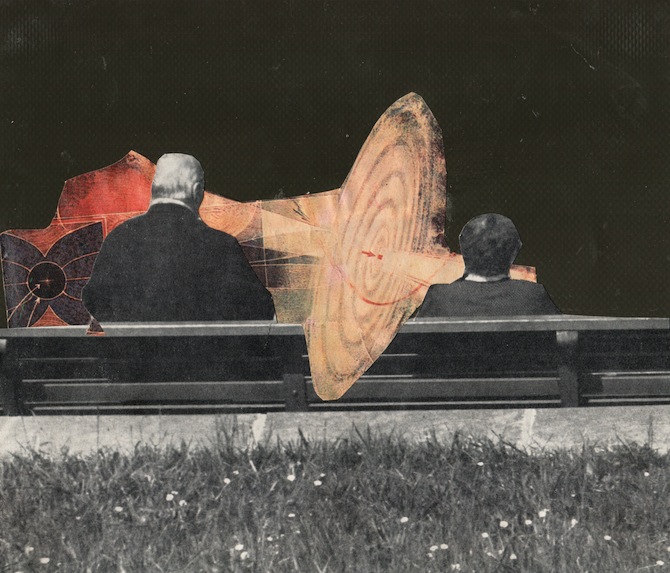
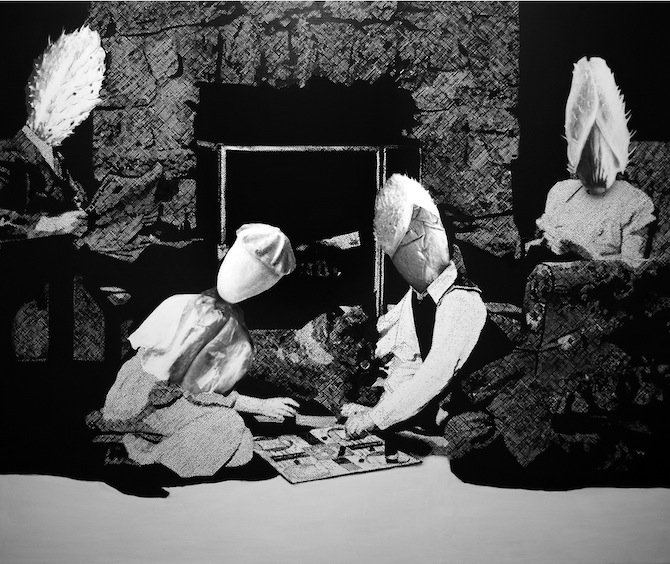
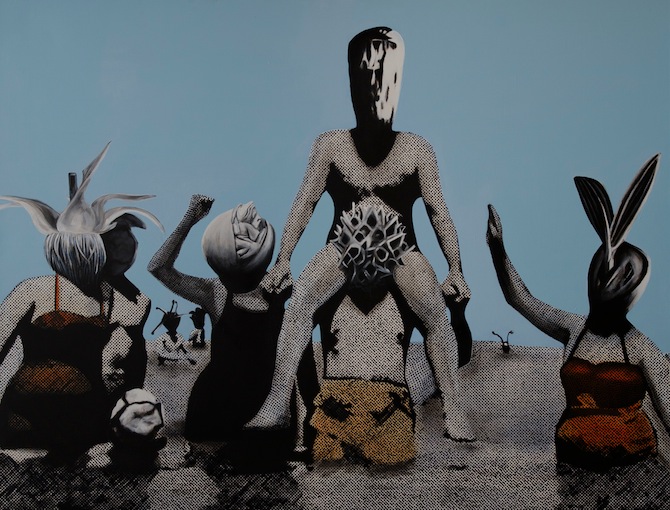
all images: Courtesy and © Özge Enginöz
